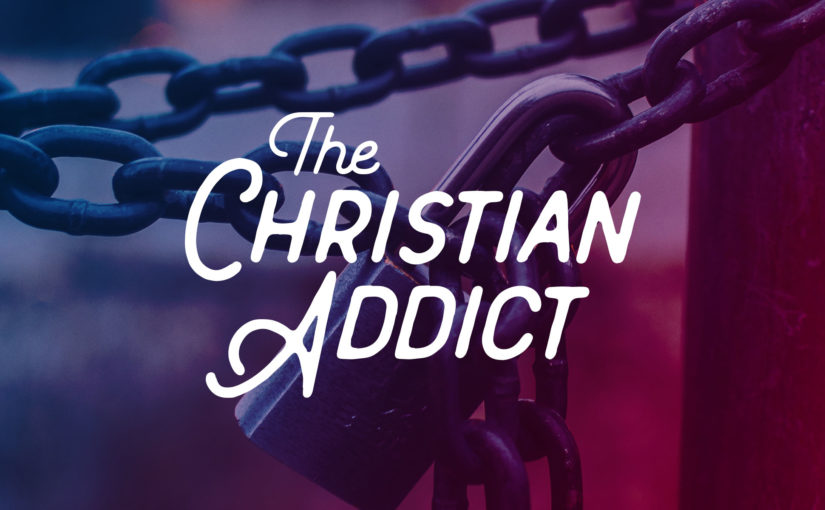In my previous post, I began pointing out the porn-saturated nature of our culture. This is a continuation of those thoughts.
YouTube and Facebook are the two social media/entertainment apps that I typically keep installed on my phone, but in recent weeks I’ve been disappointed by both. The goal of any social media platform is to drive engagement and consume as much of a user’s time as possible. I have believed this for years, but if you need proof of this assertion, I highly recommend watching the documentary The Social Dilemma, which is currently streaming on Netflix. It is truly eye-opening and thought provoking.
Recently, YouTube rolled out a feature called “Shorts”. Just as Instagram blatantly copied SnapChat with its “Stories” feature a few years ago, YouTube is now basically copying TikTok. So in addition to the traditional YouTube experience of long-form videos, you can now watch the same kinds of short videos that can be found on TikTok. In fact, most of the featured “YouTube Shorts” are usually just TikTok videos that have been re-uploaded to YouTube.
This brings me back to where I left off last time, concerning the algorithm.
Before we dive in, let’s cover some basic information. Every time you open your favorite social media app, you are giving the companies behind them precious personal information. I don’t mean that you’re entering in your Social Security number or things like that — although the average person probably does share too much identifying info on social platforms — I mean that they are tracking every interaction you have in order to create a profile of who you are.
Let’s consider Facebook. Sure, you define your public profile on the platform — the one where you “like” your favorite Christian musicians, “like” certain political ideals, “like” your favorite football team, discuss hobbies and interests in certain discussion groups, “check in” at restaurants and events, post photos of your family, and so forth. This is the profile you want people to see, but this is not the profile that Facebook wants or cares about.
Facebook wants, and more importantly gets, to know the real you.
Facebook knows that you’re the type of person who aimlessly scrolls through the feed for hours each week. They know that you linger on ads for women’s athletic wear. They know that you always pause for a few minutes to read the latest news about celebrities, and that you especially click to view posts with leading headlines like “Miley Cyrus bares all in skimpy silk bikini.” Facebook knows whose profile you keep checking in on; you know — that one with the great body who posts a lot of beach pics in the summer. Facebook knows who you privately message, and they know what you’re likely to buy.
The point is, Facebook knows the real you. Thanks to the Facebook tracking pixel, which is an analytics tool installed on millions of websites, they also know how you interact when you leave the platform. I would guess that Facebook has a handle on at least 70% of your internet travels outside the platform. I’m basing that on my experiences building websites professionally over the past decade.
You’ve probably experienced that creepy situation where you mentioned some product or service to a friend in passing, then within days or even hours, you suddenly start seeing ads for that product or service in your feed. Is Facebook listening to your conversations too?
I’m not exaggerating when I claim that Facebook and other social apps are tracking everything. Even the smallest “micro-interactions” are valuable data. Though you may not “like” or ask for specific types of content, Facebook knows what you actually respond to or give your time to.
You’ve helped Facebook create a very intimate profile of what makes you tick, and that profile is a precious, data-rich commodity. Facebook knows just how to keep your attention, and they are happy to sell your attention in the form of ads and marketing to the highest bidder. This is where concept of “the algorithm” kicks in.
The point of a social media algorithm is to keep you engaged by showing you what you want to see now and anticipating what you’ll want to see next.
A while back I recently paused to watch a funny Facebook ad for t-shirts; that is, t-shirts for dudes with “dad bods”. Now my feed is absolutely flooded with ads from similar companies, all trying to sell me the best t-shirt for overweight men.
I’m not a social media analyst by any stretch, but I believe that the point of a social media algorithm is to keep you engaged by showing you what you want to see now and anticipating what you’ll want to see next. YouTube has been pretty good at this for years. You watch a few videos on a given subject, get recommended some more, and soon you’re down a rabbit hole, finding interesting things to watch that you didn’t even know you were interested in.
When the content you’re viewing is wholesome, this is a great feature.
The downsides are obvious. Facebook, TikTok, Instagram, and now YouTube, will show you exactly what you want. Not the things you say you want, but the actual things your heart wants.
You’re watching videos about muscle cars. As you swipe through related videos (or random videos in the case of TikTok), you get served a trending video of an attractive woman doing squats in tight yoga pants. That’s not what you were interested in originally, but you linger and watch the whole thing because you’re captivated by her tight posterior. Even if you didn’t “like” that video, I guarantee that your feed will soon be filled with similar content. It’s not because you asked for that, it’s because your flawed human nature liked what it saw enough to pause and watch more.
In the past, I found that Instagram kept serving me a bunch of images and videos that were questionable. On a good day, I’d click the option to “show fewer posts like this”. On a bad day, I’d just keep swiping and indulging my eyes because, let’s face it, I liked what I saw.
“Yeah, but it’s not like that stuff is porn.”
Again, I guess it depends on your definition of porn, as I mentioned in my last post. No, I can’t say that everything I’ve seen was intended to evoke sexual arousal. But did it start a flame of desire or lustful interest in my heart? Even just a small one? That’s been my experience on a good day. On a bad day, things have the potential to get drastically worse.
There have been times when, induced by stress or other factors, I’ve completely lost my head and blatantly searched for sexually-charged terms. You won’t find posts of naked individuals outright having sex — assuming the social app you’re using has caught them — but I guarantee you will find plenty of posts on whatever subject you’re searching for. They may not be visually explicit, but they’re leading. They stoke the embers and give you a little nudge toward lustful thoughts.
And the saddest part is that more that you indulge your evil desires on a bad day, the more you’ll be served questionable content on a good day. That’s the nature of the algorithm: drive user engagement by delivering the content that captivates the most.
So where does that leave me?
Honestly, I don’t have a clear answer. I think that’s why I’ve written this post — because I’m struggling with what the appropriate approach is to social media. For me, I think Instagram and TikTok are better left off my phone.
Social media is not all bad. As a creative person, I have some ideas for short TikTok videos that I think would be hilarious and entertaining. I’d love to share these ideas with the world and see where they go, but at this point, I don’t trust myself on the platform enough to invest my time there.
In this post I’ve used the term “you” frequently, which may have come across a bit preachy. The truth is that I’ve drafted this post as a warning to myself as much as anyone else. At this point, I don’t believe that God is calling me to delete my Facebook account or anything, but as social media continues to evolve and cater to the depravities of humankind, I (we) need to be very careful.
Ultimately, we know that temptation is a heart issue. Referring back to James 1:14, “…each person is tempted when he is lured and enticed by his own desire.” It’s probably a good idea for me to stand a little further away from the fire so I don’t get burned.





